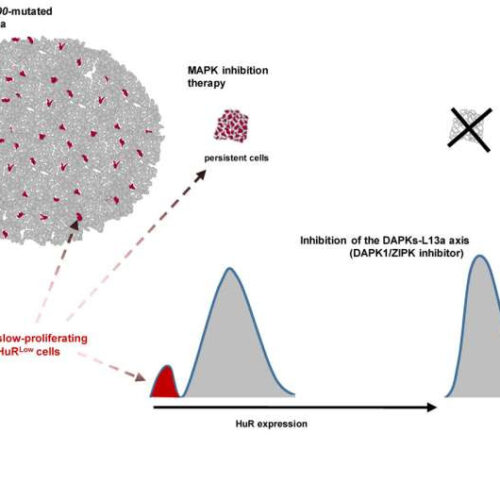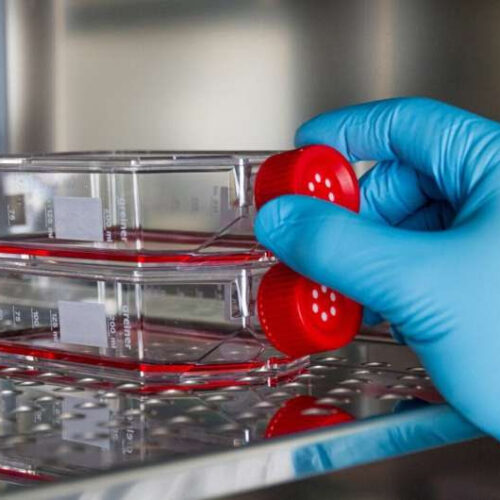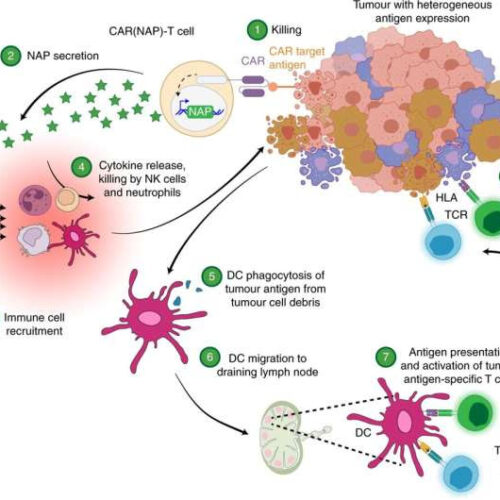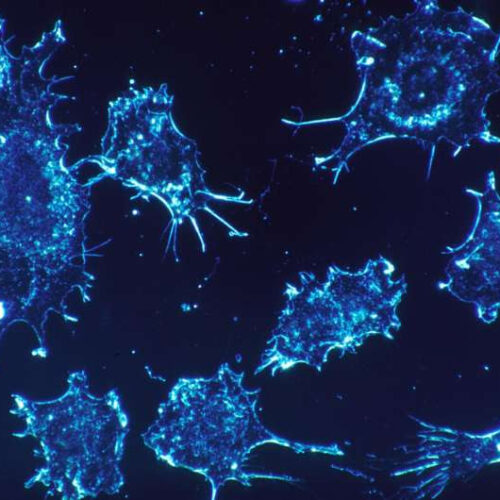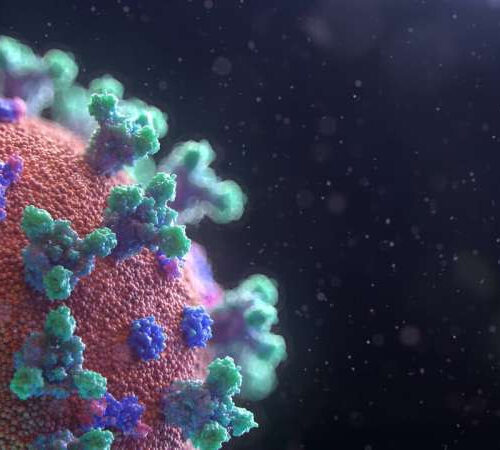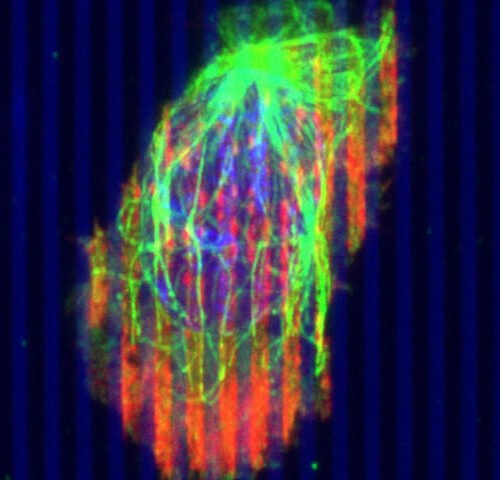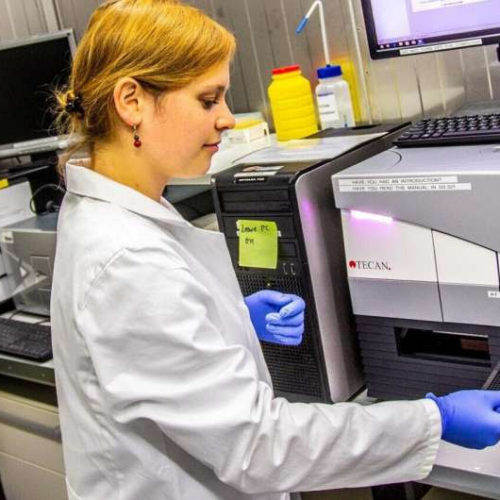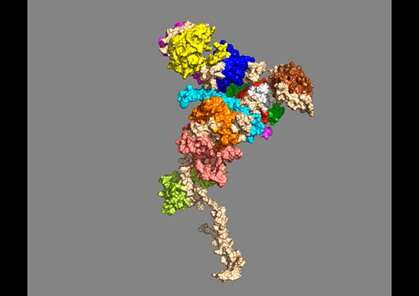by University of Geneva Targeted inhibition of the DAPKs (Death-associated protein kinase 1 and 3) reduces the proportion of slow-proliferating/senescent-like HuRLow cells and the adaptive response of the whole melanoma-cell population to BRAF inhibition. Credit: UNIGE / Rastine Merat The advent of small-molecule targeted therapies, a decade ago, revolutionized the treatment of metastatic melanoma, provided...
Tag: <span>fight cancer</span>
Herpes virus to be weaponized to fight cancer
by Fraunhofer-Gesellschaft For experimental purposes, the programmable herpes simplex virus is propagated in cell cultures in an incubator. Credit: Fraunhofer-Gesellschaft Viruses are simple in structure: They consist of a small amount of genetic material wrapped in proteins and lipids. Measuring just 20 to 200 nanometers in size, they can only be detected with an electron...
Armed CAR-T cells to better fight cancer
by Uppsala University Proposed mode of action of CAR(NAP) T-cell therapy. CAR(NAP) T cells are CAR T cells armed with NAP, an immune activator derived from H. pylori. Within a solid tumor, heterogeneity in antigen expression makes it difficult to eradicate all tumor cells with conventional CAR T cells. CAR(NAP) T cells secrete NAP during...
A new approach for bolstering the ability of T cells to fight cancer
by Monash University Credit: CC0 Public Domain A collaborative study led by the Monash Biomedicine Discovery Institute (BDI) has discovered a new immune checkpoint that may be exploited for cancer therapy. The study shows that by inhibiting the protein tyrosine phosphatase PTP1B in T cells, the body’s immune response to cancer can be mobilized, helping to repress tumor...
‘Unlocking’ the potential of viruses to fight cancer
by Luxembourg Institute of Health Credit: Unsplash/CC0 Public Domain Researchers from the Laboratory of Oncolytic-Virus-Immuno-Therapeutics (LOVIT) at the LIH Department of Oncology (DONC) are working on the development of novel anticancer strategies based on oncolytic viruses, ‘good’ viruses that can specifically infect, replicate in and kill cancer cells. In particular, the LOVIT team elucidated the...
Drug commonly used as antidepressant helps fight cancer in mice
UNIVERSITY OF CALIFORNIA – LOS ANGELES HEALTH SCIENCES IMAGE: SHIRLEY XI WANG, LILI YANG AND RYAN YU-CHEN WANG FOUND THAT MICE BECAME MORE CAPABLE OF FIGHTING MELANOMA AND COLON TUMORS WHEN TREATED WITH MAOIS. CREDIT: UCLA BROAD STEM CELL RESEARCH CENTER A class of drug called monoamine oxidase inhibitors is commonly prescribed to treat depression; the medications...
New research optimizes body’s own immune system to fight cancer
A groundbreaking study led by engineering and medical researchers at the University of Minnesota Twin Cities shows how engineered immune cells used in new cancer therapies can overcome physical barriers to allow a patient’s own immune system to fight tumors. The research could improve cancer therapies in the future for millions of people worldwide. The research is published...
A hairpin to fight cancer
WILEY The inhibition of pathological protein-protein interactions is a promising approach for treating a large number of diseases, including many forms of cancer. A team of researchers has now developed a bicyclic peptide that binds to beta-catenin–a protein associated with certain types of tumor. The secret of their success is the cyclic nature and the...
Stimulating the immune system to fight cancer
by Max Planck Society Elisabeth Hennes is searching for potential IDO1 inhibitors with the nerwly developed cell-based assay. Credit: @MPI of Molecular Physiology Cancer cells have evolved mechanisms to escape the body’s immune defense. Agents that prevent immune escape are attractive targets for the development of new cancer therapies. Scientists led by Prof. Herbert Waldmann and...
Researchers develop potential way to reprogram immune cells to fight cancer, other diseases
by Michael Tullier, Tuskegee University Immune therapy research by a team of Tuskegee University faculty scientists and doctoral students—in partnership with the National Institutes of Health—shows great promise in the ability to reprogram immune cells, kill cancer cells and halt tumor growth in several types of cancer. These research findings are described in detail in...

